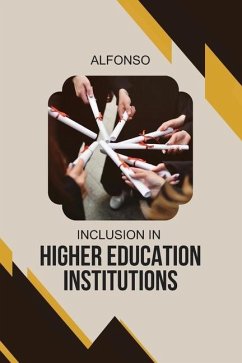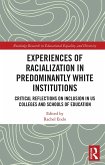Inclusion in higher education institutions refers to creating an environment where individuals from diverse backgrounds, abilities, and identities are given equal opportunities to participate, learn, and succeed. It involves embracing and valuing differences, promoting equity, and fostering a sense of belonging for all members of the community. Inclusive higher education institutions prioritize accessibility and accommodations to ensure that students with disabilities or special needs can fully engage in academic and social activities. This may include providing assistive technologies, accessible campus infrastructure, and support services such as sign language interpreters or note-taking assistance. Moreover, inclusive institutions recognize that diversity extends beyond disability and actively seek to create an inclusive environment for individuals from various racial, ethnic, cultural, socioeconomic, and LGBTQ+ backgrounds. To achieve inclusion, higher education institutions must implement inclusive policies and practices that address biases, discrimination, and systemic barriers. This involves promoting diversity in recruitment and admissions processes, ensuring diverse representation among faculty and staff, and creating inclusive curricula that reflect diverse perspectives. Inclusive institutions also provide resources and support systems to address the unique needs and challenges faced by underrepresented groups, such as mentorship programs, affinity groups, and counseling services. Inclusion in higher education goes beyond mere representation; it requires fostering a sense of belonging and actively engaging all students in the learning process. This can be achieved through inclusive teaching methodologies, such as active learning, cooperative group work, and experiential learning, that accommodate different learning styles and encourage student participation. Inclusive institutions also promote dialogue, open-mindedness, and respectful interactions among students, faculty, and staff, creating a welcoming and supportive campus climate. Ultimately, the goal of inclusion in higher education institutions is to empower students from all backgrounds to thrive academically, personally, and professionally. By embracing diversity, dismantling barriers, and fostering inclusive practices, these institutions create a vibrant and enriching learning environment that prepares students to contribute to a diverse and interconnected world.
Hinweis: Dieser Artikel kann nur an eine deutsche Lieferadresse ausgeliefert werden.
Hinweis: Dieser Artikel kann nur an eine deutsche Lieferadresse ausgeliefert werden.








